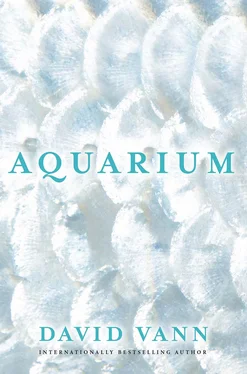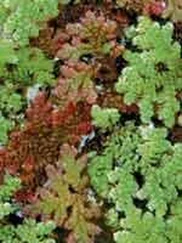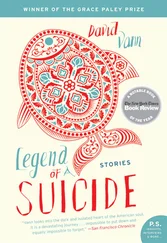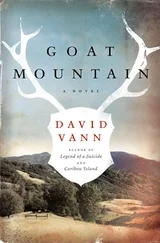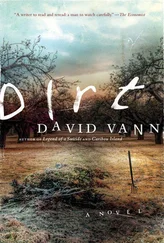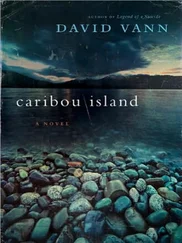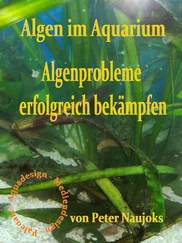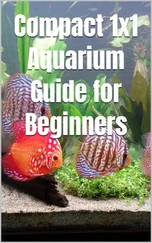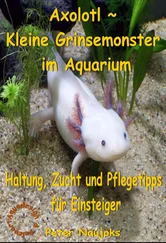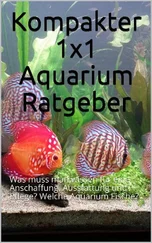For my good and generous mother, Lorraine Ida Vann

It was a fish so ugly it didn’t seem to be a fish at all. A rock made of cold flesh mossy and overgrown, mottled green and white. I hadn’t seen it at first, but then I pressed my face to the glass and tried to get closer. Buried in that impossible growth, the curve downward of thick lips, grimace for a mouth. Small black bead of an eye. Thick tail banded with dark spots. But nothing else recognizable as fish.
He’s an ugly one.
An old man next to me suddenly, his voice an unwelcome surprise. No one ever spoke to me here. Dark rooms, humid and warm, haven from the snow outside.
I guess so, I said.
Those eggs. He’s keeping them all safe.
And then I saw the eggs. I had thought the fish was partially hidden behind a white sea anemone, a clump of rounded soft white orbs, but I could see now there were no stalks, each orb individual, eggs somehow hanging together on the side of this fish.
Three-spot frogfish, the man said. They don’t know why the male keeps the eggs. Could be to keep them safe. Could be to lure other fish near.
Where are the three spots?
The old man chuckled. Good point. More spots on him than on an old man’s hand.
I didn’t look. I didn’t want to see his hand. He was very old, as in almost dead. At least seventy or something but standing okay. His breath an old person’s breath. I cupped my hands at the glass and moved away a bit, as if I were just looking for a better viewing angle.
How old are you? he asked.
Twelve.
You’re a pretty girl. Why aren’t you with your friends, or your mother?
My mother works. I wait for her here. She picks me up at four thirty or five, depending on traffic.
Just then the fish lifted a fin partway, exactly like toes peeling away from rock, soft pale underside.
Our legs and arms are fins, I said. Look at his. Almost like toes grabbing the rock.
Wow, the old man said. We’ve changed so much we no longer recognize ourselves.
I looked at him then, the old man. Mottled flesh like the fish, hair hanging over in a part the way this fish’s upper fin curled over the eggs. Mouth in a grimace, lips downward. Small eyes buried in puffy lined flesh, camouflage, looking away. He was afraid.
Why are you here? I asked.
I just want to see. I don’t have much time.
Well you can watch the fish with me.
Thank you.
The frogfish wasn’t floating above the rocks. He was clinging to them. He looked like he would flee at any moment, but he hadn’t moved except to readjust his toes.
I bet it’s warm in there, the man said. Tropical water. Indonesia. A whole life spent surrounded by warm water.
Like never getting out of the bath.
Exactly.

Another strange fish floated by higher above us, like leopard-print lace with the spots stretched. See-through fins and no shape of a fish, only a splotch of pattern.
Striated frogfish, the man said. A relative. Its Latin name mentions the antenna.
Where’s his mouth, or his eye, or anything?
I don’t know.
How can they even call that a fish?
It’s a good question.
How old are you?
The man grinned. Sounds like you’re questioning how I can even be called a human.
Sorry.
It’s okay. I have to admit, I wonder about this myself. If I can hardly walk, and I’m alone, and I’m no longer recognizable, my face nothing like it was before, all the parts of it hiding away, so that I’m a surprise even to myself, then can you call that what you called it before? Isn’t it something new? And if no one else sees it, is it anything?
I’m sorry.
No. It’s an interesting question, one we should think about together. It would be my pleasure. We can think about whether he’s a fish and I’m a human.
Well I have to go. It’s almost four thirty, so my mother might drive up.
What time will you be here tomorrow?
School’s out at two forty. So about quarter after three.
Where do you go to school?
Gatzert.
Isn’t that a long way to walk?
Yeah. Okay bye. I walked away in a hurry through those dark corridors rimmed in light. The aquarium itself felt like it was underwater, a submarine at tremendous depth. And then I’d emerge into the lobby and suddenly it was another world, the bright clouds of a Seattle sunset, a few orange patches in gray, streets wet. Snow turned to black and brown slush, waiting to become ice. My mother not yet at the curb.
I put my coat on and zipped up. I loved the feel of being doubled in size. I pulled the hood over my head, fake fur. I was almost invisible.
My mother rarely showed up at four thirty. I always started waiting then, but I had a lot of time to look at the railroad tracks across the street and the freeway overpasses beyond. Great slabs of dark concrete in the sky, the world banded. You could go north or south from here, and we always went south. The street was called Alaskan Way, but we never went that way.
Trucks and endless cars, concrete and sound and cold, nothing like the world of fish. They had never felt wind. They had never been cold or seen snow. But they did have to wait. All they did was wait. And what did they see in the glass? Did they see us, or only reflections of themselves, a house of mirrors?
I was going to be an ichthyologist when I grew up. I was going to live in Australia or Indonesia or Belize or on the Red Sea and spend most of my day submerged in that same warm water. A fish tank stretching thousands of miles. The problem with the aquarium was that we couldn’t join them.
My mother drove an old Thunderbird. Apparently she had imagined a freer life before I came along. The front hood was half the length of the car. An enormous engine that galloped high and low at the curb. It could die at any moment, but it was going to finish off all the gas in the world first.
Two-tone brown paint, lighter along the sides of the car, peeling all across the hood and roof, like galaxies opening up, silver suns in clusters too far away to name.
The door swung wide like the counterweight for a crane, thousands of pounds. I always had to pull with both hands to try to bring it back.
How were the fish?
Okay.
Make any friends? This was my mother’s joke almost every day, about my making friends with the fish. I wasn’t going to tell her that today I actually had made a friend.
I finally got the door closed, and we sputtered off. We didn’t wear seat belts.
My mother worked in the container port, basic labor. She wore heavy work boots, brown Carhartt overalls, a flannel shirt, her hair back in a ponytail. But she was starting to do some rigging of cranes and hoped someday to be a crane operator. They made a lot of money, sometimes over a hundred thousand. We’d be rich.
How was school?
Okay. Mr. Gustafson said next year our grades will matter.
And they don’t now?
No. He said sixth grade doesn’t matter. But seventh grade matters a little bit. He said nothing really matters until eighth grade, but seventh matters a little.
God, where do they find these people? And it’s supposed to be a better school. I had to lie about our address to get you in up there.
I like Mr. Gustafson.
Oh yeah?
He’s funny. He can never find anything. Today we all had to look for one of his books.
Читать дальше
